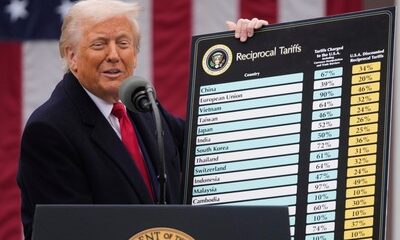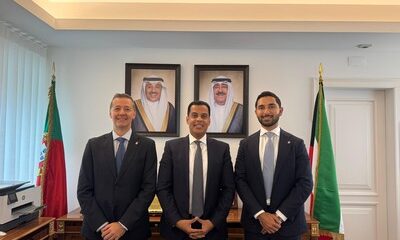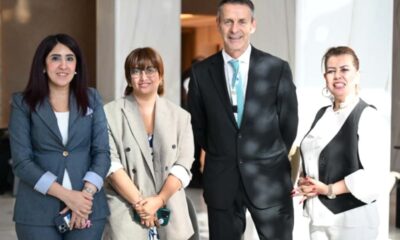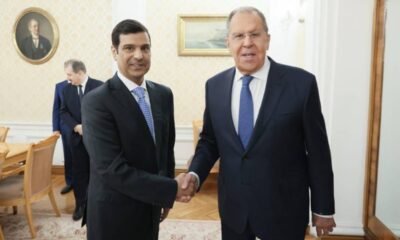Brazil’s President Luiz Inacio Lula da Silva flashes a thumbs up and winks, accompanied by first lady Rosangela da Silva during a presentation of the federal government’s achievements of the past two years, in Brasilia, Brazil on April 3. (AP)
MEXICO CITY, April 10, (AP): The leaders of Mexico and Brazil said on Wednesday they would work to strengthen trade between their nations – Latin America’s two biggest economies – as a counterweight to US President Donald Trump’s shifting positions on global tariffs that have thrown markets into chaos. Mexican President Claudia Sheinbaum and Brazilian President Luiz Inácio Lula da Silva met on the sidelines of a regional summit in Honduras, where leaders strategized how to respond Trump’s tariffs and escalating deportations, among other issues.
“We decided to further strengthen relations between our two countries by promoting regular meetings between our governments and the business sectors of Brazil and Mexico,” Lula said on X. The meeting of 11 heads of state and 20 representatives from Latin America and the Caribbean, a bloc known as the Community of Latin American and Caribbean States, was marked by a call to put aside differences in the face of global tensions. “
Today more than ever is a good time to recognize that Latin America and the Caribbean require unity and solidarity,” Sheinbaum said during the summit. Trump on Wednesday suspended his global tariffs for 90 days on most countries other than China, which was hit with increased 125% tariffs, another escalation in the trade war between the two countries.
Even with the pause in tariffs, resentment still simmers among many trading partners and U.S. allies, which have started to look for other reliable trade alternatives in the face of uncertainty under the Trump administration. Adding to the economic turmoil are also larger frustrations over Trump’s deportation tactics, increasingly the subject of legal scrutiny and human rights criticisms, and moves by his administration that some say infringe on the sovereignty of foreign nations.
That has spanned from US Defense Secretary Pete Hegseth saying that Chinese presence in the Panama Canal represents a security threat, to recent reports that the Trump administration is studying the possibility of drone strikes against Mexican cartels, which Sheinbaum has sharply rejected. “We do not agree with any kind of intervention or interference,” she told reporters Tuesday in her morning news conference.

 Latest News23 hours ago
Latest News23 hours ago
 Politics16 hours ago
Politics16 hours ago
 Latest News17 hours ago
Latest News17 hours ago
 Latest News15 hours ago
Latest News15 hours ago
 Politics7 hours ago
Politics7 hours ago
 Business7 hours ago
Business7 hours ago
 Latest News7 hours ago
Latest News7 hours ago
 Politics6 hours ago
Politics6 hours ago






















